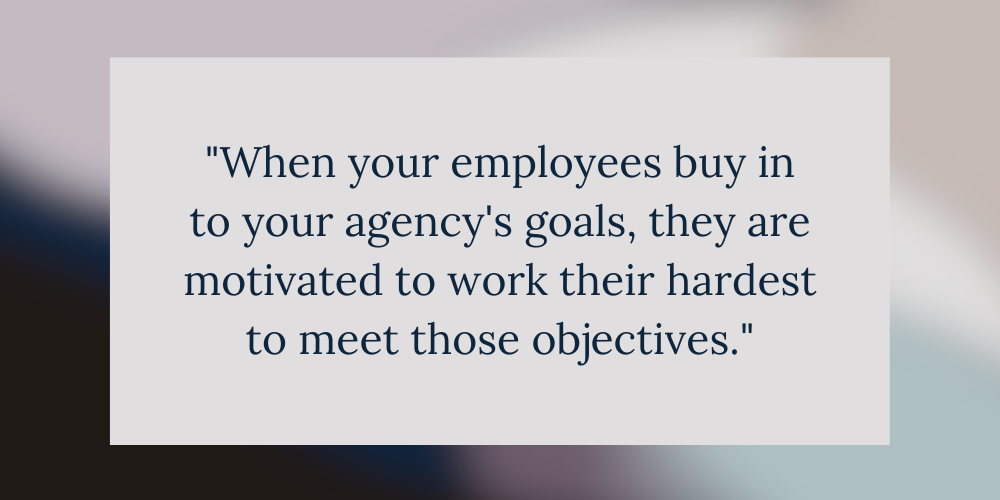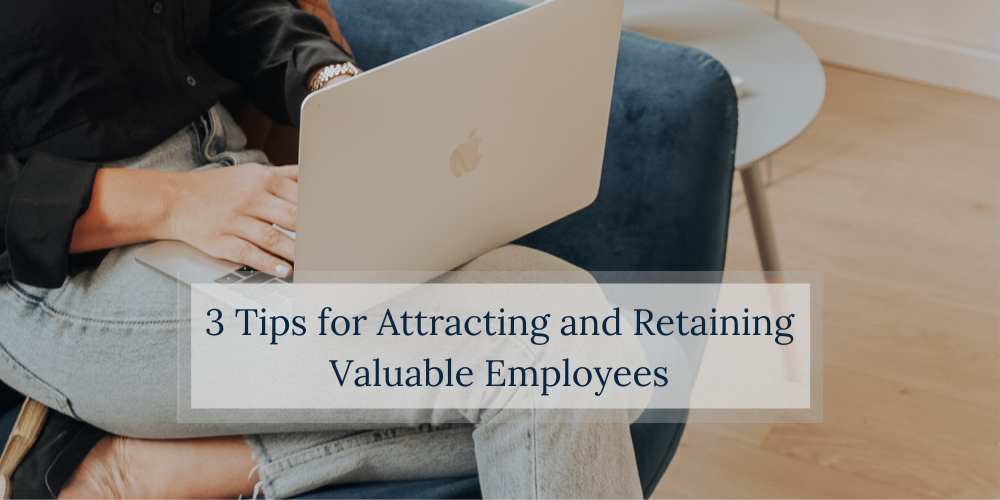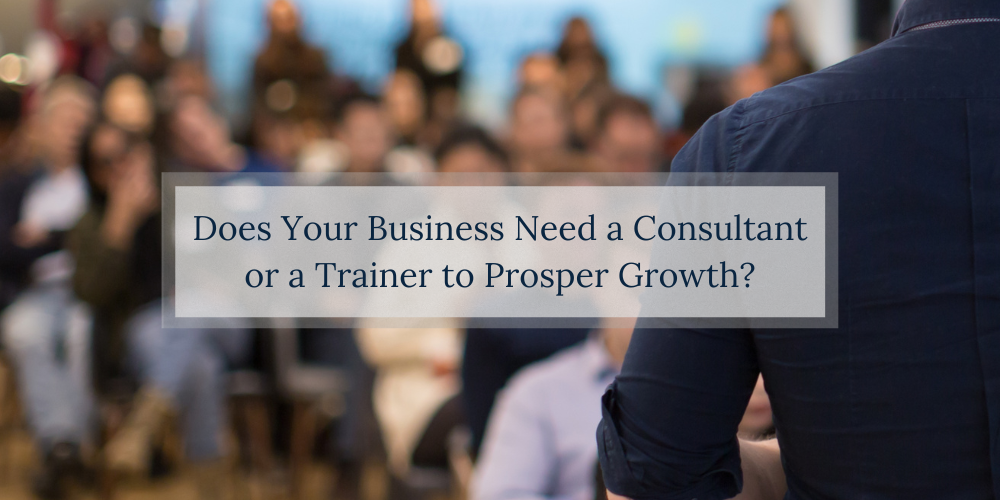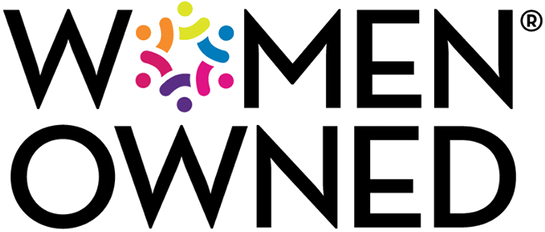There is a never-ending list of things successful agencies must always be working on. Completing high-quality, on-time work for your clients. Pitching new clients. Minimizing costs to increase your bottom line. And that’s just naming a few.
So, is it really worth your time to focus on employee buy-in? Isn’t it enough to just have a work environment that your employees enjoy?
No, it’s not.
When you have the buy-in of your employees, they feel essential to achieving the company’s vision and goals, and they are motivated to work their hardest to meet those objectives.
But how do you get your employees’ buy-in and support?
Employees must be able to trust their leaders.
- Trustworthy leaders do not have an “us vs. them” mentality. They view their employees as peers whose ideas, opinions, and skills are valuable.
- Trustworthy leaders have integrity. Their words match their actions. They are ethical, and their actions are above reproach.
- Trustworthy leaders are honest. They are not secretive, and they are transparent about the state of the business.
- Trustworthy leaders put their employees ahead of their own ambition. They are others-focused and want to see their employees succeed and grow.
- Trustworthy leaders are competent. They have the knowledge and skills to do their job well.
Leaders must prioritize two-way communication.
- Leaders must put processes in place to ensure that every employee understands the agency’s vision and goals and their part toward achieving them.
- Leaders must regularly communicate the progress the team is making toward their goals and recognize both team and individual employee contributions.
- Leaders must solicit employees’ feedback on the goals themselves, objectives to achieve them and improvements.
- Leaders must prioritize face-to-face, two-way communication vs. impersonal, directive emails.

Employees must understand their importance at a macro and micro level.
- Every employee should know why his role is vital to the organization’s success.
- The employee must also know how her individual contribution is valuable to the agency. Employees cannot feel easily replaced.
- Each employee must see that what he does has an impact on the person before him and after him in a process.
- The employee must be knowledgeable about the processes she is a part of, knowing what takes place before and after her part.
Change is an inevitable part of doing business. In fact, Philip Crosby said, “Slowness to change usually means fear of the new.”
Employees who trust their leaders, have two-way communication with management and understand their own importance are less afraid of the new, more likely to be engaged, and fully committed to their work. Engaged employees embrace change as an opportunity to improve themselves, their work and the success of the agency.
What practical steps are you taking to create more engaged employees?
For personalized, expert advice, don’t hesitate to get in touch with us. You can schedule a complimentary 45-minute discovery call by contacting us here.





